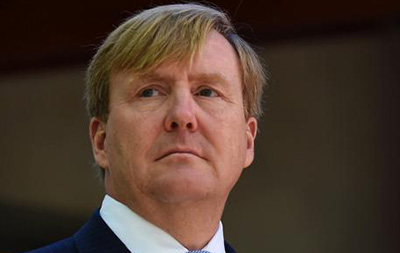'Cash for access' scandal hits Britain's Parliament
Three members of Britain's upper house of Parliament stood accused on Sunday of offering to use their influence for personal gain in a widening scandal over the improper influence of paying lobbyists over legislators.
A series of media sting operations has thrust the lobbying issue into the limelight and already forced a lawmaker from the lower house of Parliament, Patrick Mercer, to resign from the ruling Conservative Party and seek legal advice.
Labour Party peers Brian Mackenzie and Jack Cunningham and Ulster Unionist John Laird were recorded by a Sunday Times reporter pretending to represent a solar energy firm.
They appeared to agree to push the firm's cause in Parliament. Cunningham was recorded saying he could help with "knocking on doors, introductions and getting to see people, including if necessary the ministers", as well as asking questions in the Lords - for a fee of up to 12,000 pounds ($18,000) a month.
British parliamentarians are barred from engaging in "paid advocacy" for outside groups, but critics say the rules are too loose.
All three denied breaking the chamber's rules.
Laird resigned from the Ulster Unionists pending an investigation into the allegations. The Labour Party said it would consider disciplinary action against any of its peers who are found to have broken the Lords code of conduct.
The scandal will renew pressure on Prime Minister David Cameron to introduce a statutory register of lobbyists, as promised in 2010 in the coalition agreement between his Conservatives and their junior partners, the Liberal Democrats.
Cameron warned more than three years ago that lobbying was "the next big scandal waiting to happen", but critics, including some Liberal Democrats, accuse him of dragging his feet.
Testing suspicions
"The coalition agreement promised action, and cross-party support was offered. However, scandals around 'cash for access' continue to be present at the heart of this government," said Labour legislator Jon Trickett, speaking for the party.
Sunday Times reporters approached Cunningham, a former minister under then-prime minister Tony Blair in the 1990s, pretending to represent a South Korean solar energy company.
"Are you suggesting 10,000 pounds a month? Make that ... 12,000 pounds a month. I think we could do a deal on that," he was quoted as saying by the newspaper during a discussion about his fees for what was described as consultancy work. Cunningham later sent a statement to the Sunday Times saying he had referred to "a fanciful 12,000 pounds a month" to test his suspicion that he was talking to undercover journalists.
There was also footage of the other two peers caught in the sting, Mackenzie and Laird.
"I deny any agreement to operate in breach of the House of Lords code of conduct and, in fact, recall that I made it clear that I would only operate within the rules," Cunningham said in the statement sent to the Sunday Times.
Laird also issued a statement denying he had broken the rules and Mackenzie denied wrongdoing in a BBC radio interview. The three peers could not immediately be reached by Reuters.
Mercer was caught out by undercover reporters from the Daily Telegraph newspaper and the BBC's investigative Panorama program posing as lobbyists for businesses seeking to end Fiji's suspension from the Commonwealth on human rights grounds.
His resignation from the Conservative Party was no great loss to Cameron as the House of Commons MP was an outspoken critic of the prime minister, but the allegations against him reflect badly on the party and on Parliament in general.
Reuters-AP



















